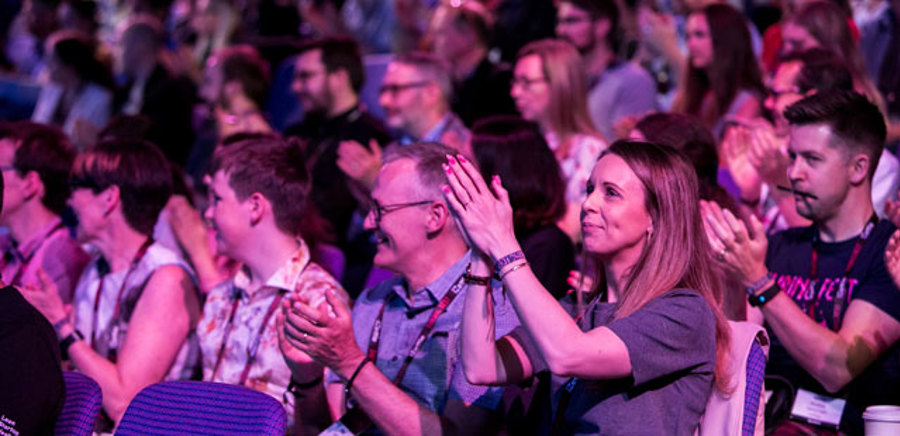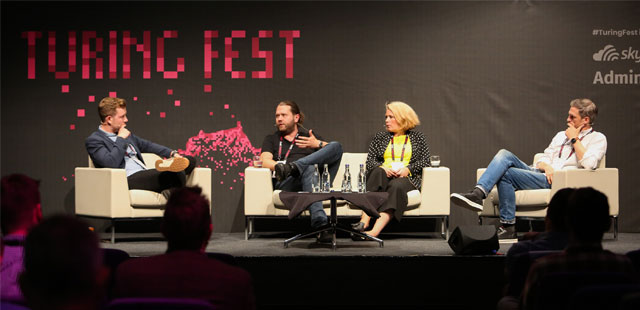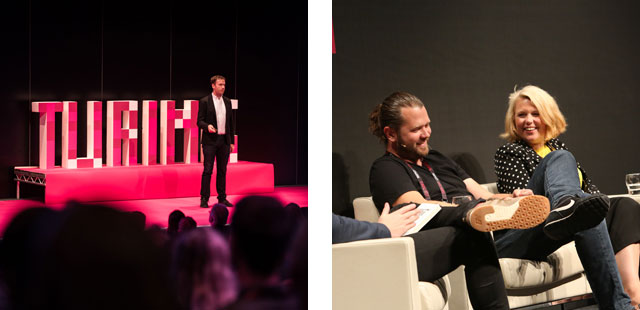
Festivals were once the envy of conference organisers unsure how to match the same level of spectacle and hype at their own events. Now the two are being combined to huge success, technically and commercially. Conference Call spoke to Brian Corcoran, CEO and Founder of Turing Fest, to find out how the festival format has shaped his event and what it can do for others
Brian Corcoran
Why was Turing Fest established as a festival? What was it about the festival format that you knew was right?
BRIAN CORCORAN: The goal with Turing Fest is to create Europe’s best cross-functional conference for tech creators and company builders. From the strategic side to the tactical, the technical execution to the commercial, the product parts to the human — our community comes together in Edinburgh each August to learn, to teach, to have fun, and to get better at what they do. The fact that we run during the Edinburgh festivals creates both an added incentive for out-of-town visitors to attend the conference, and a wonderfully diverse and entertaining backdrop that our entire community can explore; in many ways it’s the same dynamic that has helped SXSW in Austin become such an iconic event.
How have your attendees reacted to the festival format?
BC: It’s been really positive! Turing Fest is growing in popularity every year, and the feedback (along with the number of attendees and speakers who come back year after year!) speaks for itself. From 600 attendees in 2016, we’ve grown to around 2000 from 22 different countries in 2018.
Would it be fair to say that there's more to 'festivalising' an event than just upping the volume and making a spectacle?
BC: Absolutely — the main thing to us is delivering a truly valuable individual experience for every attendee, and designing an experience that’s fun and sociable as well as educational. We cater to several pretty distinct tech tribes — engineers, marketers, founders; we tailor content to each tribe’s particular areas of interest, but we also try to design an environment that encourages people to step outside their own community of practice, dip into other tracks and engage with their peers in adjacent spaces and functions, and share in what they’re learning and discussing. Coupled with all of the social activities that we build around the core content, this festival atmosphere and cross-functionality by design is really what’s unique about Turing Fest.

What are some of the biggest challenges you've faced putting Turing Fest together over the years?
BC: Finding the right space is definitely one of the key challenges, especially in Edinburgh during August: it needs to be somewhere that fosters the ability to network and have fun, but that also has great auditorium space enabling 2,000 plus attendees to really feel part of the action. That’s why we’ve been very happy to make our home at EICC for the past two years.
What would you say are the benefits of running a B2B meeting in a festival format?
BC: I'd say the main benefits are that the festival format delivers a far more personal and therefore memorable experience. It also encourages networking and socialising, and that all-important peer-to-peer sharing and learning. And if, like Turing Fest, it’s a B2B meeting that spans many different industries, sectors and disciplines, the festival format is really the only viable way to deliver such a diverse programme.
Does size matter, or can smaller B2B events also be successfully run as festivals?
BC: While we now have 2,000 plus attendees at Turing Fest (compared to just 600 back in 2016) and while we have been experimenting with and refining the format, we knew we were onto something from the very start. Events (no matter what scale or scope) need to deliver content that resonates with every single attendee, and the festival format with its heightened personalisation does that.
Tech seems to lend itself to a festival format, but in your opinion, can other industries make the format work for them? For instance, could financial services take a leaf from the books of B2B festival organisers?
BC: Given that there is a strong spend trend in the UK at present focussed on entertainment (UK consumers are now choosing to spend more on entertainment than on material items) then I think all events need to be cognisant of ensuring there is an entertainment element and therefore the industry is actually irrelevant.
Can you tell us about any plans to develop Turing Fest for 2019?
BC: Our main focus for 2019 is to continue expanding the scope of Turing Fest, to cover more areas in more detail, while preserving a real community feel — we don’t want to make it feel huge and impersonal; we want Turing Fest to continue being a space for everyone involved in building tech businesses to come together and share experience and expertise, in a really casual and friendly environment.

